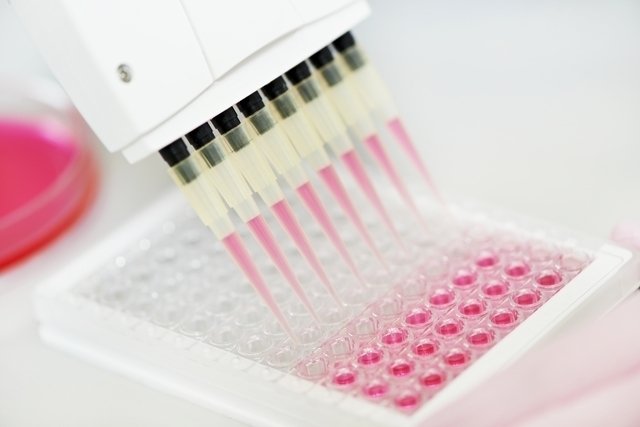The HCV test is a laboratory test indicated for the investigation of infection with the hepatitis C virus, HCV. Thus, through this test, it is possible to check the presence of the virus or antibodies produced by the body against this virus, anti-HCV, and is therefore useful in diagnosing hepatitis C.
This test is simple, it is carried out by analyzing a small blood sample and is normally requested when there is suspicion of HCV infection, that is, when the person has had contact with the blood of an infected person, has had unprotected sexual intercourse or when there was sharing of syringes or needles, for example, as these are common ways of transmitting the disease.
In addition to the HCV test, it is common for the doctor to recommend carrying out other tests that help assess the health of the liver, since this virus can compromise the functioning of this organ, such as measuring the liver enzymes TGO and TGP, CRP and gamma- GT. Find out about the tests that evaluate the liver.

What is it for
The HCV test is requested by the doctor to investigate infection with the HCV virus, which is responsible for hepatitis C. Through the test it is possible to know if the person has already been in contact with the virus or if they have an active infection, as well as the amount of virus present in the body, which can indicate the severity of the disease and be useful in recommending the most appropriate treatment.
When is indicated
The HCV test is recommended by the doctor when the person is exposed to any of the risk factors related to the transmission of the disease, such as:
- Contact with blood or secretions from an infected person;
- Sharing syringes or needles;
- Unprotected sexual intercourse;
- Multiple sexual partners;
- Carrying out tattoos or piercings with potentially contaminated material.
In addition, other situations that are related to HCV transmission are sharing razors or manicure or pedicure instruments, and having a blood transfusion before 1993. Find out more about HCV transmission and what prevention should be like.
How is done
The HCV test is carried out through the analysis of a small blood sample collected in the laboratory, without the need for any type of preparation. In the laboratory, the sample is processed and, depending on the exam indication, two tests can be carried out:
1. Exame anti-HCV
The anti-HCV test, also known as measurement of antibodies against HCV, aims to measure the antibodies produced by the body in response to the presence of the virus. This exam, in addition to being used to assess response to treatment and severity of the disease, also allows us to know how the body is reacting against the infection.
2. Viral identification
The viral identification test is a more specific test that allows you to identify the presence of the virus in the blood and the quantity found, this test being important in determining the severity of the disease and monitoring the response to treatment.

Sign up for our newsletter and stay up to date with exclusive news
that can transform your routine!
Warning: Undefined array key "title" in /home/storelat/public_html/wp-content/plugins/link-whisper-premium/templates/frontend/related-posts.php on line 12
Warning: Undefined array key "title_tag" in /home/storelat/public_html/wp-content/plugins/link-whisper-premium/templates/frontend/related-posts.php on line 13



